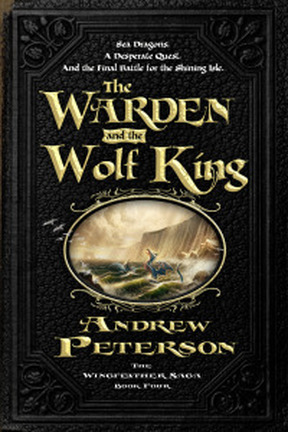 Interview by Brock Eastman Featuring The Warden and the Wolf King Brock: So Andrew we know you first as a music artist. What made you want to write the Wingfeather Saga and how did the idea come about? Andrew: I’ve loved these kinds of stories since I was a kid. My reading interests are pretty broad—which is to say that I don’t necessarily love fantasy as a genre, but I love good books, good stories, whatever genre they happen to be. That said, fantasy has a certain kind of power that drew me in when I was young, and I still get butterflies in my stomach whenever I walk through the young adult or fantasy/sci-fi section of a bookstore. So when I finally decided to stop talking about someday writing a book and to actually write one, there was never any doubt that I wanted to try and tell a big, sweeping adventure story. Brock: That you did, with four books and a creaturepedia in the series, you’ve created and immersive world with wonderfully engaging characters. Who are the main characters in the series and what makes them unique? Andrew: The three main characters are siblings named Janner, Kalmar, and Leeli. Janner (12) is the eldest, he’s a bookworm, and he wants more than anything else to be at peace in the world along with his family. His little brother Kalmar (11) is the artist, and he has a tendency to get into trouble because he’s impulsive. Leeli (9) is the musician. She walks with a crutch because of an injury to her foot when she was a baby, but that doesn’t keep her from being fiercely independent. Brock: Might you give us one fact about each of the characters that no one else knows, even your most avid fans? Andrew: Facts that no one knows: Janner likes apples, but he likes cheese more. Kalmar once stole a berry bun from the Dragon Day festival and felt so bad about it the next day that he bought three berry buns from another stand and slipped them onto the platter of the first baker. Then he decided three buns was too much penance and ate one. Leeli always thought Faddy, the elder of the Blaggus boys, was very handsome, and before she met Thorn O’Sally (of the Green Hollows), she assumed she would marry him, even though she hated the idea of her name being Leeli Blaggus. Brock: Ha, ha, you put a grand smile on my face. And this is the sort of wit and humor I’ve come to expect and enjoyed while reading the series. In three sentences what is Warden and the Wolf King about? Andrew: Janner, Kalmar, and Leeli Wingfeather—Throne Warden, High King, and Song Maiden of the Shining Isle—are children, but find themselves nonetheless at the center of a great battle for the freedom of the world from a monster named Gnag. While Leeli, using her music as a weapon, leads the warriors of the Green Hollows in the battle against the Fangs of Dang, Janner and Kalmar attempt to sneak through Gnag’s dungeons to face him alone. Ultimately, though, the story is about Janner’s struggle to learn what it means to be a hero. Brock: That’s a theme we can all relate to in our own lives in our own situations. What does it take to be a hero in the plan God has for us? Though you have said the series has come to a conclusion, any chance of more books? Your fans really got behind you on KickStarter, I am sure they would again. Andrew: Yes! I can’t wait to write my next story. I’ve started one, but music is a big part of what I do so I have to focus on the next album right now. We’re putting together a collection from the last 15 years of music, called After All These Years, then I’ll start writing songs for a new record next year. After that I’ll be able to dedicate more time to a book. I don’t know exactly what it will be yet, but I’m sure there will be plenty of danger, adventure, and strangeness. I can’t wait. Brock: And neither can I. Did you outline the entire series, or do you write as you go and let the characters take control of the story? Andrew: There was a sort of outline, but it was mostly in my head. I had a general sense of where the story was going, and when I got stuck I would write quick chapter synopses in order to get the thing moving again. But that thing you hear about, where the characters start doing their own thing? That totally happened, weird as it sounds. More than just the characters, though, the story seemed to suggest itself to me. Unless you’ve written something like this it’s hard to understand, but there’s this real sense that the story “wants” to be told in a certain way, that it’s better at times than the author could have planned. Brock: That I understand 100%. I’ve often tried to explain this to students when I speak, or in interviews. It’s truly amazing how one’s characters can lead you down a path and create a story that comes so alive. I’m a card carrying, “You might think I’m nuts, but my characters speak to me,” author myself. You noted on your website that you had to combine a planned book 4 and 5 together. Was that hard? Did you leave anything out, or is it just a thicker book? Andrew: No, I didn’t really combine two books. Back in the day, after I finished book one, I planned out the story as well as I could, and it divided neatly into five books. But halfway through book two I realized that things were happening faster than I intended, and four books made more sense. The reason this one is twice as long as the others is because there were so many loose ends to be tied up. Remember at the end of The Lord of the Rings when the ring of power is finally destroyed and there’s still two hundred pages left? The first time I read it I wondered what on earth still had to happen. But it turns out, those last two hundred pages are my favorite in the whole book. Even once the bad guy is defeated, there’s this massive mess to be cleaned up, I realized, and the story just couldn’t end there. Not only that, there were lots of questions and characters that I wrote into the story early on and kind of forgot about. Then I’d get emails from readers saying, “I can’t wait till you bring So-and-so back!” Oops. So I had to make sure and bring the whole saga’s story arc to a finish—not just the fourth book’s. It was much more difficult than with the other books. Brock: You and I need to exchange notes more often. I’m in the edits for book 4 in The Quest for Truth right now, and my editors biggest concern was the disappearance of some characters that readers have come to love. Alas it makes editing a 100k word manuscript very interesting when you have to integrate new storylines in to the book after it’s written. And now the fourth book Warden and the Wolf King has been out for a little while,what has been the reaction to the final installment from your readers? Andrew: To be honest, the reaction has been overwhelming. After ten years of work, I desperately hoped the readers would resonate with the ending. I’ve gotten several emails that were so gratifying I actually cried while reading them. More than just the thrill of knowing that I’d written a book (which is a thrill that fades in about five seconds), I wanted to tell a story that would really get into peoples’ hearts. I hoped that they would close the final book and really feel something. It’s not like everyone is going to have that reaction, but I’ve gotten enough feedback to know that at least a few people have, and I thank God for that. I really wanted the story to still be alive and kicking in the readers’ hearts long after they finished the story, which is why it ends with a question mark. Brock: Probably the most humbling and honoring thing of writing, is finding that someone reading it has been truly impacted. How does your music complement your writing? Andrew: It gives me something else to do while I’m working on a story. I have a songwriter friend who took up painting a few years ago, and he says it’s been a tremendous help—not just to his songwriting, but to his soul. There’s a mysterious connection between one artistic discipline (like painting) and another (like songwriting), in which one improves the other. Back when I first started the Wingfeather Saga I drew a toothy cow (the most horrifying of creatures in Skree!) and was surprised that my drawing was better than it had been in high school when I was building a portfolio for art college (which I never applied for). For some reason, ten years as a songwriter had made me better at drawing, though I hadn’t practiced my technique a bit. So even though I can’t explain it, I suspect studying songwriting may help my storytelling, and storytelling may help my drawing, and drawing may help my gardening, or whatever. So even though I’m sometimes frustrated that I’m supposed to be writing a book when I really want to be working on music, or that I’m working on an album when I wish I could dig into another story, if I was only working on one or the other I’d likely be bored out of my skull. Brock: With that said, has any of your writing (brainstorming) influenced new song ideas, or song writing? Andrew: Nothing specific comes to mind, but there’s a common theme that seems to run through both the books and the music—an ache for home, a hope that our dissatisfaction with life and the brokenness of things points to a day when there will be justice and peace and ultimate healing. Brock: How did you balance your music touring with writing the novel? Andrew: This may sound like a trite answer, but it’s true: day by day. My family and I are used to flying by the seat of our pants, making it up as we go, and then looking back at the end of the year without knowing how we pulled it off. I just tried to write whenever I could, and I toured whenever I had to. Meanwhile, Jamie and the kids are the most encouraging, kindhearted people I know. Brock: It’s so key to have a supportive and loving family. I’m blessed by my wife and three girls. What do you hope kids take away from Wingfeather Saga? Andrew: First, I hope they simply love the story. As I was writing the book I was thinking, “What needs to happen that will make the reader want to turn the page and keep reading?” That’s the first thing. Beyond that, I hope they’re able to believe that even though the world is at times a terribly dark place, there’s a power and a light that dwarfs the darkness. The bad guys are scary but the good guys win. I hope they feel some kind of longing. I hope they’re ultimately comforted and reminded that they’re not alone. That’s what my favorite books did for me when I was young. Brock: Was that when you realized you wanted to write a novel? Andrew: When I was in the eighth grade and I read my first Dragonlance book. I tried writing a lot back then, before music took over. Brock: Well many of our thankful for your music, and we’re glad you got to put your hand to writing as well. In what ways does your faith impact how you approach writing? Andrew: My faith informs every aspect of the creative process. It’s no exaggeration to say that before I turned whatever gifts I had over to Christ, I had nothing to write about. Every song was a lame girlfriend song, every story attempt was hollow. But once I began to truly believe that the stories I grew up reading in church were true stories—true in both senses of the word—the world seemed to be brimming with beauty and story and song. If I believe that God is the source of everything good and true and beautiful, then I should pay close attention to the way He tells stories. I should pay attention to the motifs and symbols and metaphors He uses. I should approach the writing of a song or a story with a sense of humility and wonder, because every creative act is possible only because of the Creator. That’s what Tolkien was doing with The Lord of the Rings—he was telling a eucatastrophe story (which is the opposite of a catastrophe) because he recognized that kind of storytelling being employed by God in all of creation and even the Incarnation itself. Brock: I often get excited when I think about how we (Christian Artists/Authors/Creatives) have a real advantage over non-Christians, we’ve got a direct link to the Creator of everything. And if we truly seek His will and follow His lead, amazing things can happen. We’re simply the vessel to deliver his message! What was your favorite book as a teen? Andrew: I keep bringing it up, but nothing really comes close: The Lord of the Rings. I didn’t read it until I was about 18, and up to then I’d read a lot of Poe, C. S. Lewis, Arthur Conan Doyle, along with a bunch of terribly written but terribly enjoyable fantasy novels. I loved the Prydain books by Lloyd Alexander (which are enjoyable and well-written). Brock: Now some fun questions, less related to the writing and music. What’s your favorite place to vacation? Andrew: Castlerock, Northern Ireland. We went as a family on a tour/sabbatical last year, and fell in love. If I ever disappear, that should be the first place the authorities look. Brock: Do you have a favorite Bible verse? Andrew: I love the beginning of Colossians, about the preeminence of Christ: “He is the image of the invisible God, the firstborn over all creation,” and it goes on to describe Jesus as the center of everything. I read it at the end of every Christmas concert, and it always gives me chills—especially in light of having just sung about him being a little infant. Brock: Do you listen to music while you write? If so what are some examples? Andrew: I usually write in a public place, whether Starbucks or a library or outside in a park. I like the feeling of being present in an active place but slightly detached from it, observing from a corner. Then I put on headphones and listen to movie soundtracks. For the first book it was Thomas Newman’s amazing score for A Series of Unfortunate Events. With this last book I mainly listened to Michael Giacchino’s Super 8. It’s creepy and intense at times, but when it’s tender and beautiful it evokes a lot of my childhood feeling of adventure—or the potential of it. I even made playlists for “Creepy” scenes, “Tense” scenes, and “Warm” scenes, and put them on repeat until the chapter was finished. Any music with words gets me thinking about lyrics, so it has to be instrumental. Brock: Again we must exchange notes sometime. I do the same thing with certain playlists to invoke the mood of the scene or action sequence, and for me as well lyrics find their way into the text of my book if I am not careful. Lastly, Coke or Pepsi? Andrew: Neither. It’s either coffee or water for me these days. Brock: Thanks Andrew so much for the glimpse into your writing of both books and music. We look forward to reading great new books from you in the future.
4 Comments
Reader
5/8/2018 10:35:58 pm
Is there more to the series
Reply
Moo
9/21/2021 05:43:51 pm
Does the main character come back to life in the end???
Reply
8/23/2022 05:12:59 pm
I really need to know what happens to janner too. Did the Well bring him back?
Reply
Leave a Reply. |
Follow meArchives
May 2024
Categories
All
|
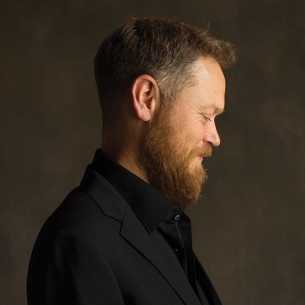
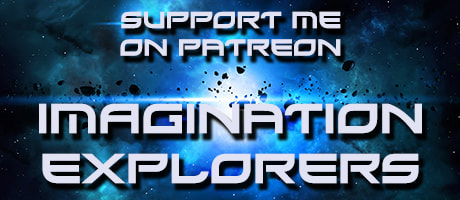
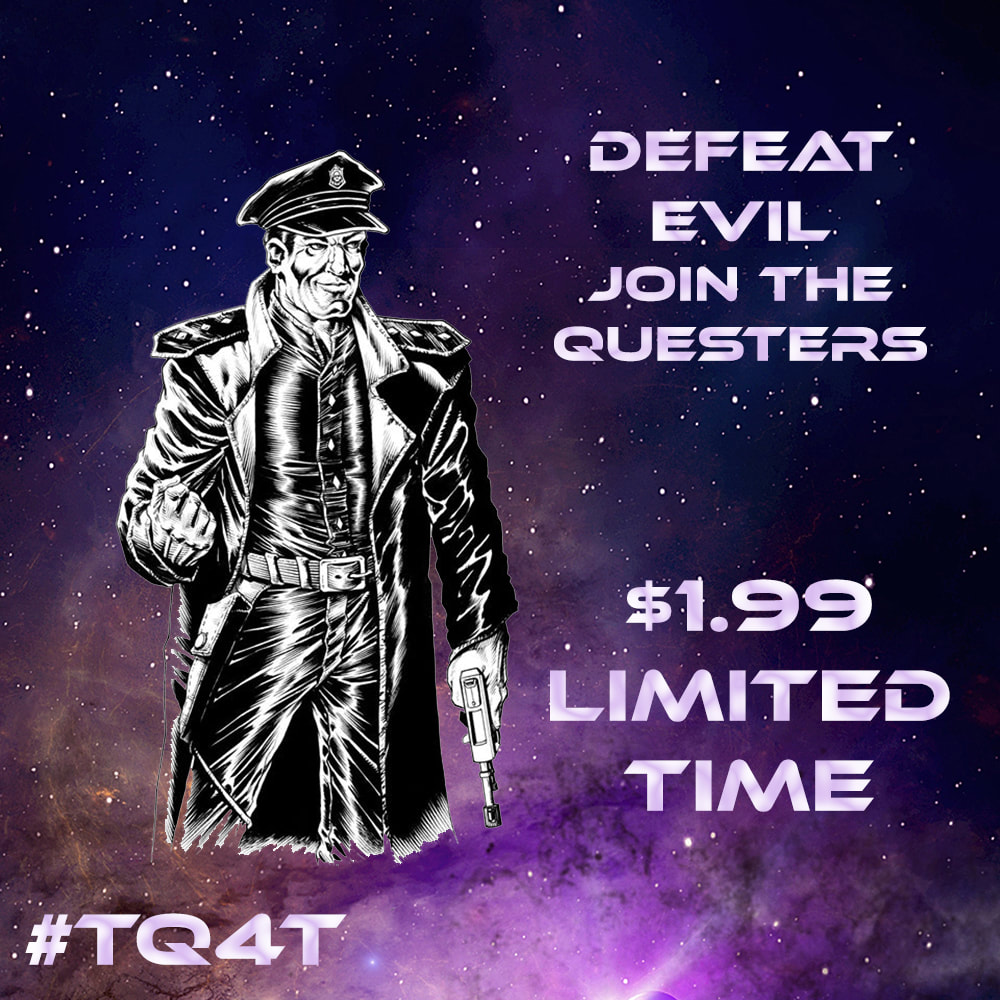
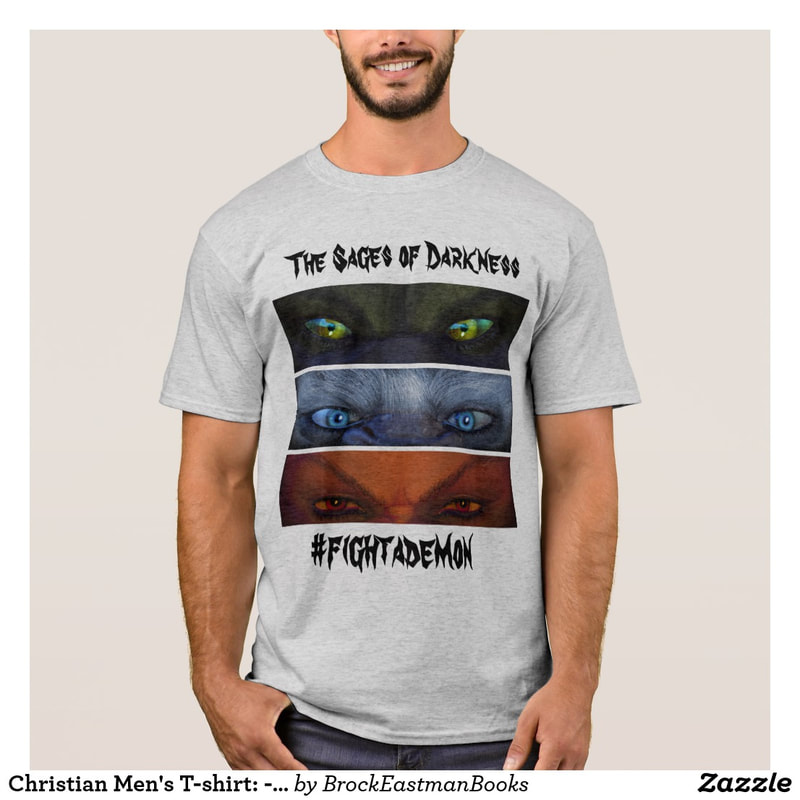

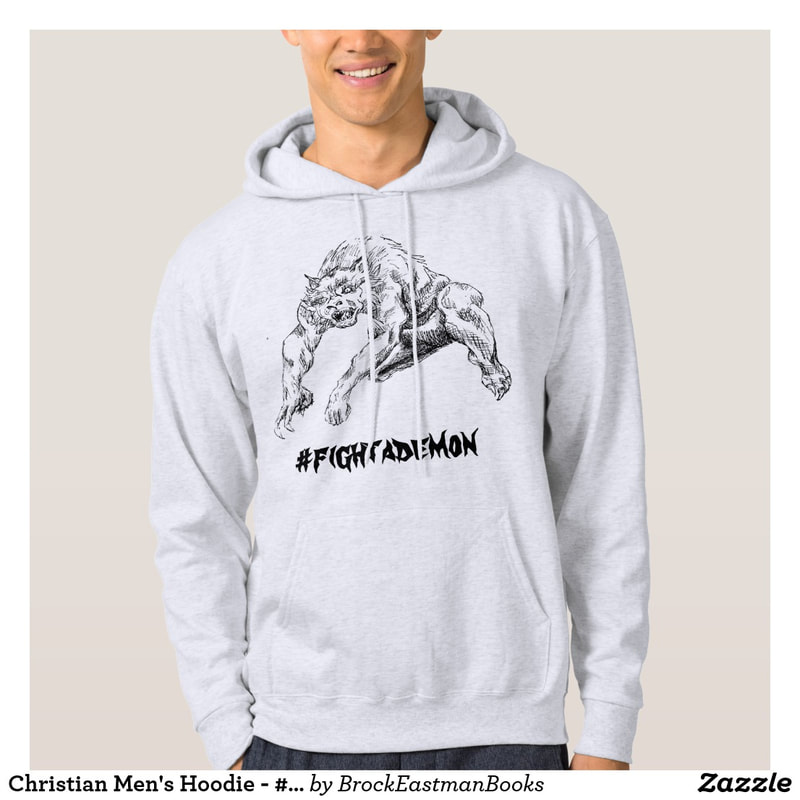

 RSS Feed
RSS Feed